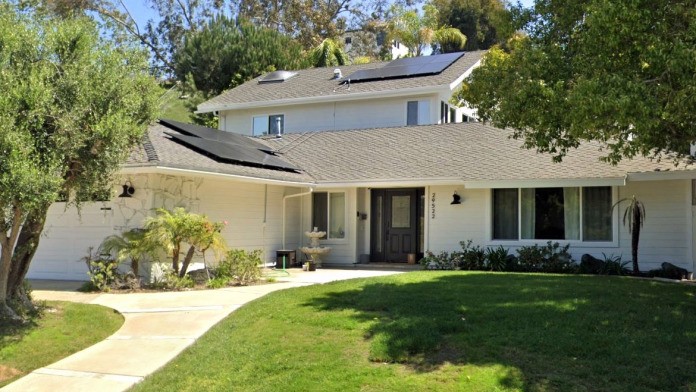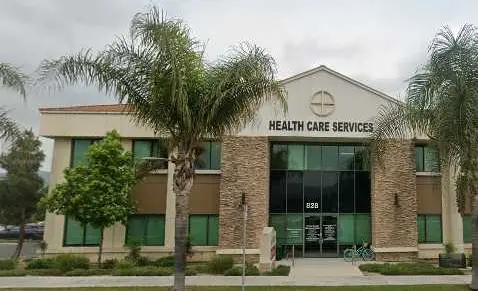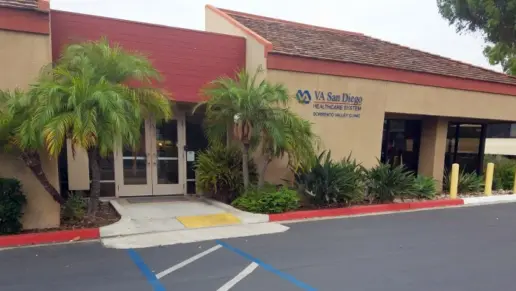About TruVida Recovery – Via Valverde Home
TruVida Recovery - Via Valverde Home is a drug rehab for adults located in Laguna Niguel, California. The center offers treatment for substance use disorder, alcohol use disorder, opioid use, chemical dependencies, and co-occurring mental and behavioral health disorders. TruVida Recovery provides detox, residential inpatient treatment, a partial hospitalization program (PHP), an intensive outpatient program (IOP), a general outpatient program (OP), dual diagnosis, case management, 12-Step treatment, and aftercare. Specialized programs are available for trauma-impacted persons and Veterans.
At TruVida Recovery, clients receive a personalized evaluation and are assigned a personalized treatment plan at a 1:1 staff-client ratio. Detox can include medication-assisted treatment (MAT) such as Vivitrol, while case managers monitor symptoms and ease withdrawal.
Clients enrolled in residential inpatient treatment receive 24/7 monitoring and support. Clients develop daily routines while they continue their treatment. Participants engage in motivational interviewing and psycho-dynamic and psycho-educational classes. Treatment methods include cognitive behavioral therapy (CBT), dialectical behavioral therapy (DBT), eye movement desensitization and reprocessing (EMDR), and assertiveness training. Community workshops and events may be available.
Partial hospitalization consists of 5-6 hours of treatment per day for 2-3 weeks. Clients receive group and individual therapy, music and arts therapy, emotional wellness education, and family resources. Additional programs can include nutritional therapy, spiritual therapy, experiential therapy, relapse-prevention therapy, and motivational enhancement therapy. A biopsychosocial evaluation is performed to help clients transition into sobriety.
IOP clients participate in an individualized program to support their daily living routines. Clients receive group and individual counseling, peer support, holistic therapy, and family coaching. Programs can also include community and family outreach and SMART recovery programs. Referrals may also be available for sober living.
Outpatient clients continue their group and individual counseling, along with peer support and holistic therapy programs. Case managers allow flexibility for clients to work around their schedules and daily living routines.
TruVida Recovery – Via Valverde Home provides continual care and support for all alumni. The center may provide referrals for additional, specialized treatment in outside facilities.
TruVida Recovery – Via Valverde Home is accredited by The Joint Commission and licensed by the California Department of Health Care Services.
TruVida Recovery – Via Valverde Home is in-network with insurance providers such as Aetna, Beacon, Blue Cross Blue Shield, Cigna, Healthnet, Highmark Health, Humana, MultiPlan, TriWest, and ValueOptions. Please contact your insurance provider for specific details concerning out-of-network coverage.
Gallery

Location
Other Forms of Payment
Self-pay involves paying for treatment out of your own pocket. You can use savings or credit, get a personal loan, or receive help from family and friends to fund your treatment. If you don't have insurance or your insurance plan doesn't cover a specific program, self-pay can help ensure you still get the care you need.
Private insurance refers to any kind of healthcare coverage that isn't from the state or federal government. This includes individual and family plans offered by an employer or purchased from the Insurance Marketplace. Every plan will have different requirements and out of pocket costs so be sure to get the full details before you start treatment.
Addiction Treatments
Levels of Care
Treatments
The goal of treatment for alcoholism is abstinence. Those with poor social support, poor motivation, or psychiatric disorders tend to relapse within a few years of treatment. For these people, success is measured by longer periods of abstinence, reduced use of alcohol, better health, and improved social functioning. Recovery and Maintenance are usually based on 12 step programs and AA meetings.
Drug rehab in California teaches participants constructive ways to stay clean and sober. Treatment revolves around helping individuals stop using the substance they are addicted to and learn healthy habits to avoid relapse.
Many of those suffering from addiction also suffer from mental or emotional illnesses like schizophrenia, bipolar disorder, depression, or anxiety disorders. Rehab and other substance abuse facilities treating those with a dual diagnosis or co-occurring disorder administer psychiatric treatment to address the person’s mental health issue in addition to drug and alcohol rehabilitation. TruVida Recovery's dual diagnosis treatment is intended to treat not only their client’s addiction problems, but also the underlying psychiatric diagnosis. With this, they are going to make a comprehensive evaluation on their clients as part of the preliminary procedure. Their experienced in-house clinicians are going to help you confront the problems, such as depression, trauma, anxiety, and bipolar disorder. They understand that substance abuse is brought by self-medication, as people try to find the solutions of their problems on their own, so they turn to drugs or alcohol. Seeing that these things seem to solve their problems even for a short run, they will hang on to it as short-term solutions may be better than having none at all.
A combined mental health and substance abuse rehab has the staff and resources available to handle individuals with both mental health and substance abuse issues. It can be challenging to determine where a specific symptom stems from (a mental health issue or an issue related to substance abuse), so mental health and substance abuse professionals are helpful in detangling symptoms and keeping treatment on track.
Opioid rehabs specialize in supporting those recovering from opioid addiction. They treat those suffering from addiction to illegal opioids like heroin, as well as prescription drugs like oxycodone. These centers typically combine both physical as well as mental and emotional support to help stop addiction. Physical support often includes medical detox and subsequent medical support (including medication), and mental support includes in-depth therapy to address the underlying causes of addiction.
Programs



Clinical Services
Cognitive Behavioral Therapy (CBT) impresses upon clients in addiction recovery treatment to recognize and stop negative patterns of thinking and behavior. Since their cognition affects their well-being, changing harmful thought patterns is essential. The essence of CBT is an assumption that a client’s mood is directly related to his or her patterns of thought. For example, CBT can help clients be aware of the stressors, situations, and feelings that lead to substance use so that the one can avoid them or act differently when they occur. Negative, dysfunctional thinking affects a person’s mood, behavior, self-worth, and even physical state. The goal of CBT is to help clients learn to recognize negative patterns of thought, evaluate their validity, and replace them with healthier ways of thinking.
Creativity is inherently healing, and can help those in recovery express thoughts or feelings they might not otherwise be able to. Creative arts therapy can include music, poetry/writing, painting, sculpting, dance, theater, sandplay, and more. Unlike traditional art, the final product matters far less than the experience of creation and expression itself.
Dialectical Behavior Therapy (DBT) is a modified form of Cognitive Behavioral Therapy (CBT), a treatment designed to help people understand and ultimately affect the relationship between their thoughts, feelings, and behaviors. DBT is often used for individuals who struggle with self-harm behaviors, such as self-mutilation (cutting) and suicidal thoughts, urges, or attempts. It has been proven clinically effective for those who struggle with out-of-control emotions and mental health illnesses like Borderline Personality Disorder.
Experiential therapy is a form of therapy in which clients are encouraged to surface and work through subconscious issues by engaging in real-time experiences. Experiential therapy departs from traditional talk therapy by involving the body, and having clients engage in activities, movements, and physical and emotional expression. This can involve role-play or using props (which can include other people). Experiential therapy can help people process trauma, memories, and emotion quickly, deeply, and in a lasting fashion, leading to substantial and impactful healing.
EMDR is a therapeutic modality originally developed to help process trauma. In an EMDR session, a patient is prompted to undergo eye movements that mimic those of REM sleep. This is accomplished by watching a therapist's finger move back and forth across, or following a bar of light. The goal is repetitive sets of eye movements that help the brain reprocess memory, which can significantly reduce the intensity of remembered traumatic incidents. Associated memories can heal simultaneously, leaving patients significantly calmer, more stable, and more emotionally relaxed.
Research clearly demonstrates that recovery is far more successful and sustainable when loved ones like family members participate in rehab and substance abuse treatment. Genetic factors may be at play when it comes to drug and alcohol addiction, as well as mental health issues. Family dynamics often play a critical role in addiction triggers, and if properly educated, family members can be a strong source of support when it comes to rehabilitation.
Fitness therapy blends exercise with psychotherapy for a fun, inspiring, and effective way of treating addiction and other issues. By incorporating movement into counseling sessions, clients become more empowered, motivated, and goal-oriented, all while strengthening their bodies and becoming more flexible. Fitness Therapy is usually used to complement a course of treatment (inpatient or outpatient) to make it even more successful. Increasing the connection between a patient’s mind and body helps both with healing as well as in creating new, healthy habits.
Through group therapies, clients will be able to learn new skills, relearn old ones, and simply express oneself in therapeutic ways. Because group members are peers who are sharing the same end goal—to be able to live a life of sobriety—they will be able to support each other on the way. Group therapies, serving as an outlet for their clients’ personal growth, are one of the crucial steps are needed to be taken to be free from addiction.
In individual therapy, a patient meets one-on-one with a trained psychologist or counselor. Therapy is a pivotal part of effective substance abuse treatment, as it often covers root causes of addiction, including challenges faced by the patient in their social, family, and work/school life. At TruVida Recovery, they are proud to have experienced therapists and psychologists who are well-versed in their fields to serve their clients well. As humanists who are continually researching on ways to improve on their craft, they employ modern techniques that guarantee effectiveness for the clients. Using the results of your initial evaluation, they will customize a plan that is geared towards your needs. According to your progress, updates will be continually made to make sure that you undergo the most comprehensive, efficient, and effective path to recovery.
Life skills trainings involve all the skills a person must have in order to function successfully in the world. These include time management, career guidance, money management, and effective communication. Truly successful addiction recovery is based on the ability to not only live substance-free, but to thrive. Life skills teaches the practical necessities of functioning in society, which sets clients up for success in life, and therefore sobriety.
Motivational Interviewing (MI) and Motivational Enhancement Therapy (MET) are counseling therapies designed to helps Clients suffering with substance addictions, to resolve their indifference towards engaging in treatment and stopping their drug use. Motivational Enhancement therapy is based on the premise that a client is responsible and capable of changing. This therapy attempts to arouse a rapid and internally motivated change, rather than guide the client through the addiction recovery process.
Nutrition therapy, aka medical nutrition therapy (MNT), is a way of treating physical, emotional, and medical conditions through diet. Specific dietary plans are designed by professional nutritionists or registered dietitians, and patients follow them in order to positively affect their physical and mental health.
Sound therapy (aka sound healing or vibrational medicine) uses sonic vibrations to stimulate healing at the cellular level. Vibrations, either from the human voice or resonant objects like tuning forks, gongs, or Tibetan bowls, affect cellular resonance in the body, which can help heal the impact of anxiety, depression, trauma, and more.
Trauma therapy addresses traumatic incidents from a client's past that are likely affecting their present-day experience. Trauma is often one of the primary triggers and potential causes of addiction, and can stem from child sexual abuse, domestic violence, having a parent with a mental illness, losing one or both parents at a young age, teenage or adult sexual assault, or any number of other factors. The purpose of trauma therapy is to allow a patient to process trauma and move through and past it, with the help of trained and compassionate mental health professionals.
Amenities
-
Residential Setting
-
Private Setting
-
Yoga Studio
-
Wifi
Accreditations

The Joint Commission, formerly known as JCAHO, is a nonprofit organization that accredits rehab organizations and programs. Founded in 1951, the Joint Commision's mission is to improve the quality of patient care and demonstrating the quality of patient care.
Joint Commission Accreditation: Yes
Accreditation Number: 601892
Contact Information
29522 Via Valverde
Laguna Niguel, CA 92677


